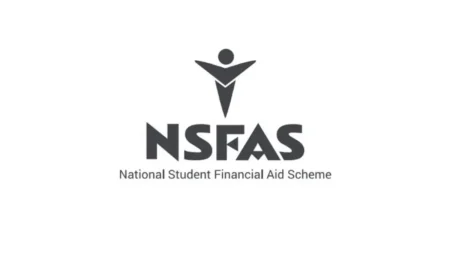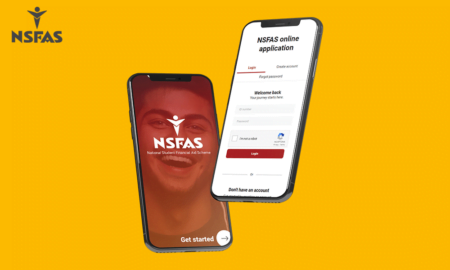If your NSFAS application for 2025 has been rejected, do not lose hope! There is still a chance to secure funding for your studies through the formal NSFAS appeal process.
Thousands of South African students face application rejection each year, but by understanding the appeal criteria, gathering the necessary documents, and following the correct steps, you can increase your chances of success.
Understanding NSFAS Appeal Eligibility
Before you begin the appeal process, it is important to understand whether you meet the eligibility criteria. NSFAS appeals are only considered if they meet specific conditions, depending on why your application was rejected.
Academic Eligibility
If your NSFAS application was rejected due to academic reasons, you may appeal if one of the following applies:
Incorrect Academic Results: If NSFAS received incorrect academic results that led to the rejection, you can provide the correct records.
Illness: If you suffered from a severe illness for an extended period during the academic term or exams, you can appeal.
Family Tragedy: A death in your immediate family during the academic term may qualify you for an appeal.
Pregnancy: If you were pregnant or gave birth during the term, you may be eligible to appeal.
Disability: If you have a disability and can provide medical documentation, you may be eligible for consideration.
Learn More: NSFAS N+Rule Explained: What It Means for Your 2025 Funding
Financial Eligibility
If your household income exceeds the NSFAS threshold, you can still appeal under certain conditions:
Change in Financial Circumstances: If there has been a significant change in your family’s financial situation (such as retrenchment, loss of employment, or the death of a key income earner), you may appeal.
Independence: If you have been declared independent by a court, meaning your parents are no longer financially responsible for your education, you may appeal.
It is also important to note that NSFAS appeals are only considered for students who applied during the official application window and submitted their initial applications on time.
Learn more: NSFAS Application Requirements for 2026
How to Submit Your NSFAS Appeal in 2025
Once you have confirmed that you are eligible to submit an appeal, you can follow these simple steps to submit your appeal successfully.
Step 1: Log Into MyNSFAS
Visit the NSFAS Website: Go to the official NSFAS website and navigate to the “MyNSFAS” portal.
Log In: Enter your ID number and password to access your account. If you have forgotten your login details, use the “Forgot Password” option to reset them.
Navigate to the Appeal Section: Once logged in, go to the “Appeal” section to check if you are eligible to submit an appeal.
Step 2: Complete the Appeal Form
Fill Out the Form: If your application is eligible for an appeal, fill out the online appeal form on the NSFAS portal.
Provide Detailed Information: Clearly explain why you believe your application should be reconsidered. Ensure your appeal is concise, factual, and includes all relevant details to support your case.
Step 3: Upload Supporting Documents
To strengthen your appeal, you must upload the necessary documents, depending on the reason for your rejection:
Certified Copy of ID: A copy of your identity document or birth certificate.
Proof of Household Income: This could include payslips, UIF documents, or an affidavit if your parents are unemployed.
Retrenchment Letter: If your parent or guardian has lost their job, provide the retrenchment letter.
Death Certificate: If a family member who contributed to the household income has passed away, include a death certificate.
Medical Reports: If illness or disability affected your academic performance, upload relevant medical documents.
Academic Transcripts: Provide recent academic transcripts or progress reports from your institution.
NSFAS Standard Propensity Letter: If your institution requires this letter, ensure it is included.
Ensure that all documents are certified, clear, and properly labeled, and that they are in PDF format before uploading them.
Step 4: Submit Your Appeal
Review: Double-check all your details and documents to ensure everything is correct before submission.
Submit: After reviewing, click the “Submit” button. Ensure that you receive a confirmation email or message to verify that your appeal has been successfully submitted.
What Happens After You Submit Your Appeal?
Once your appeal is submitted, it will be reviewed by NSFAS. You will typically receive feedback within a few weeks. Here’s what you can expect:
If Your Appeal Is Approved:
Confirmation: NSFAS will send you an SMS or email confirming that your appeal has been approved.
Funding Restored: If approved, your NSFAS funding will be reinstated. This will cover your tuition, accommodation, and allowances.
Bursary Agreement: To activate your funding, you must sign the NSFAS Bursary Agreement (NBA) online.
If Your Appeal Is Rejected:
Notification: You will be notified of the rejection via SMS or email. Unfortunately, no further appeals can be submitted.
Explore Alternative Funding: If your appeal is unsuccessful, you may need to consider alternative funding sources, such as university bursaries, student loans, or crowdfunding.
If Your Appeal Is Rejected: Alternative Funding Options
While it’s always disappointing if your appeal is unsuccessful, there are other avenues to explore for funding your studies:
Bursaries and Scholarships: Many organizations and universities offer bursaries based on financial need, academic performance, or field of study.
Student Loans: Explore student loan options from banks or institutions like Fundi.
Crowdfunding: Platforms such as GoFundMe allow students to raise funds from friends, family, and the community.
Tips for a Successful NSFAS Appeal
To increase your chances of a successful appeal, follow these tips:
Submit Early: Don’t wait until the last day to submit your appeal. Submit it as soon as possible to avoid missing the deadline.
Ensure Documents Are Certified and Clear: Only submit certified copies of your documents to ensure they are accepted.
Regularly Check for Updates: Frequently check your MyNSFAS portal for updates on your appeal status.
Be Honest and Detailed: When explaining the reason for your appeal, be truthful and detailed. Avoid exaggerating your circumstances.
Keep Proof of Submission: Always keep proof of your submission confirmation and any receipts for future reference.
NSFAS Appeal Deadline: Don’t Miss It
The NSFAS appeal deadline is strict. Appeals must be submitted within 30 days of receiving the rejection notice. Failure to submit within this timeframe will result in the automatic closure of your appeal, and you will not be eligible for NSFAS funding in 2025.
To avoid missing the deadline, check your emails and SMS notifications regularly. Ensure your contact details on MyNSFAS are up-to-date, and submit your supporting documents as early as possible.
NSFAS Appeal 2025 – Quick FAQs
1. Can I appeal if I changed my course or institution mid-year?
Yes, but only if the new course/institution is NSFAS-accredited, and you still meet academic progression requirements. You must update your details on the myNSFAS portal and submit relevant documentation.
2. What if I didn’t submit the appeal within the given timeframe?
Late appeals are not accepted. NSFAS strictly adheres to deadlines. If you missed it, you’ll need to reapply during the next funding cycle.
3. Do I need to re-upload documents if I already submitted them before?
Yes. For an appeal, you must upload documents again within the appeal process—even if they were submitted during your initial application.
4. Is NSFAS funding guaranteed after a successful appeal?
Not immediately. Once your appeal is approved, NSFAS will still verify your registration with the institution before disbursing funds.
5. Can I track my appeal progress?
Yes. Log into your myNSFAS account and check the “Appeal Status” tab. It will show if your appeal is submitted, in review, approved, or rejected.
6. Can someone else appeal on my behalf?
Only if they are your legal guardian and you provide an affidavit or power of attorney. Otherwise, you must appeal yourself using your credentials.
7. What if my appeal is approved, but I’ve already dropped out?
If you deregister or do not meet institution requirements, your funding will not be disbursed even after a successful appeal. NSFAS only funds registered, qualifying students.
8. Can I appeal if I failed more than 50% of my modules?
Yes, but only if you can show valid extenuating circumstances (e.g., medical condition, bereavement). Include clear proof with your appeal.
9. Does NSFAS notify me if my appeal is unsuccessful?
Yes. NSFAS will update your status on the portal and may also notify you via SMS or email. No funding will be processed if the appeal is denied.
10. Can I apply for another bursary while appealing?
Yes. You are allowed to apply for other bursaries or funding sources while awaiting your NSFAS appeal outcome.
Appealing a rejected NSFAS application can be a stressful process, but by following the steps outlined in this guide, you can increase your chances of success. Ensure that you meet the eligibility criteria, submit the correct documents on time, and follow up regularly to track your appeal status.
Remember, if your appeal is unsuccessful, there are still other funding options available. Whether you are appealing a decision due to financial changes, academic reasons, or special circumstances, this guide will help you navigate the process and secure the support you need to continue your education.
For further assistance, visit the NSFAS website, contact the NSFAS support team, or reach out to your university’s financial aid office.










